Research Culture & Community Grant – Relaunch with dedicated ECR Funding
Following the success of the Doctoral College Research Culture & Community Grant for our PGR community, we are excited to announce a new funding strand specifically for Early Career Researchers.
This is your opportunity to secure dedicated funding to develop your ideas, build essential collaborations, and grow professionally within BU’s research environment.

We have set aside grants to support ECR-led social and/or academic events. Whether it is a social mixer, a focused training workshop, or a creative new initiative, we want to empower you to enhance the BU research culture and community.
Which stream is right for your idea?
We have two dedicated streams to support a diverse range of activities:
Stream 1: Researcher Development
This stream supports the organisation of skills-focused workshops, events, or initiatives designed to build research capacity.
- Grants Available: Up to £500 per activity
- Examples: Specialised research methods workshops, inviting an external guest speaker, or dedicated academic writing sessions.
Stream 2: Research Culture & Community
This stream supports initiatives focused on community building, well-being, or social activities that enhance the overall research culture at BU.
- Grants Available: Up to £300 per activity.
- Examples: Cultural and social events, or activities specifically designed to enhance researcher well-being.
Key Terms & Conditions
Please review the following terms before submitting your application:
One Activity Limit: No ECR should be the primary organiser of more than one activity.
Community Reach: Activities should be engaging and made available to the full PGR community.
Commitment: Organisers must be committed to promoting, delivering, and evaluating their activity.
Timeline: Activities must take place and be invoiced before 31 July 2026.
Originality: Activities should not duplicate those already on offer elsewhere within the Doctoral College or wider University.
Match Funding: Contributions from other sources are welcome to complement the Doctoral College grant.
Non-Retrospective: Funding will not be offered for activities that have already taken place.
Ready to apply?
If you would like to discuss your ideas before submitting your application, we encourage you to get in touch. Please contact Enrica Conrotto, Researcher Development Manager at researcherdevelopment@bournemouth.ac.uk
The closing date for all applications is 4pm, Friday 12 December 2025
Apply here
We look forward to seeing your ideas and supporting you in shaping the future of community and development at BU.
The Researcher Development and Culture Team
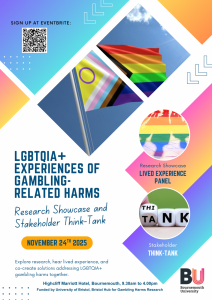
 Register now to attend the 17th Annual Postgraduate Research Conference, hosted by the Doctoral College.
Register now to attend the 17th Annual Postgraduate Research Conference, hosted by the Doctoral College.



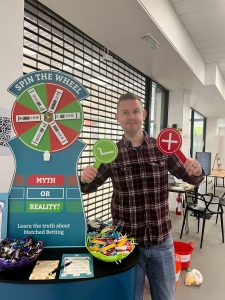
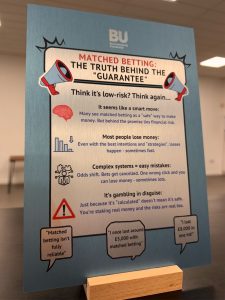


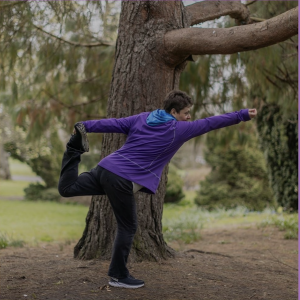
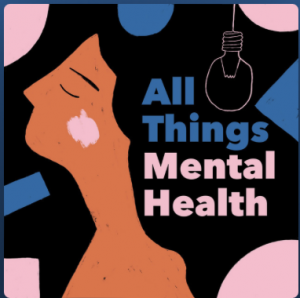


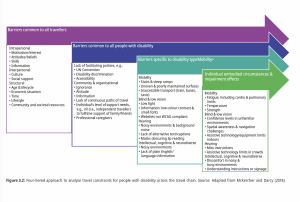
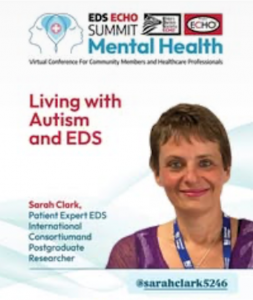
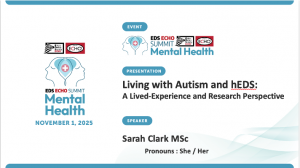
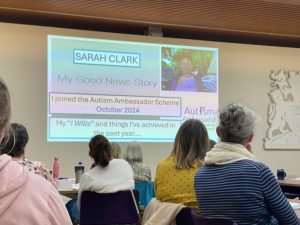
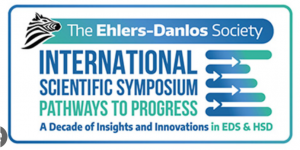
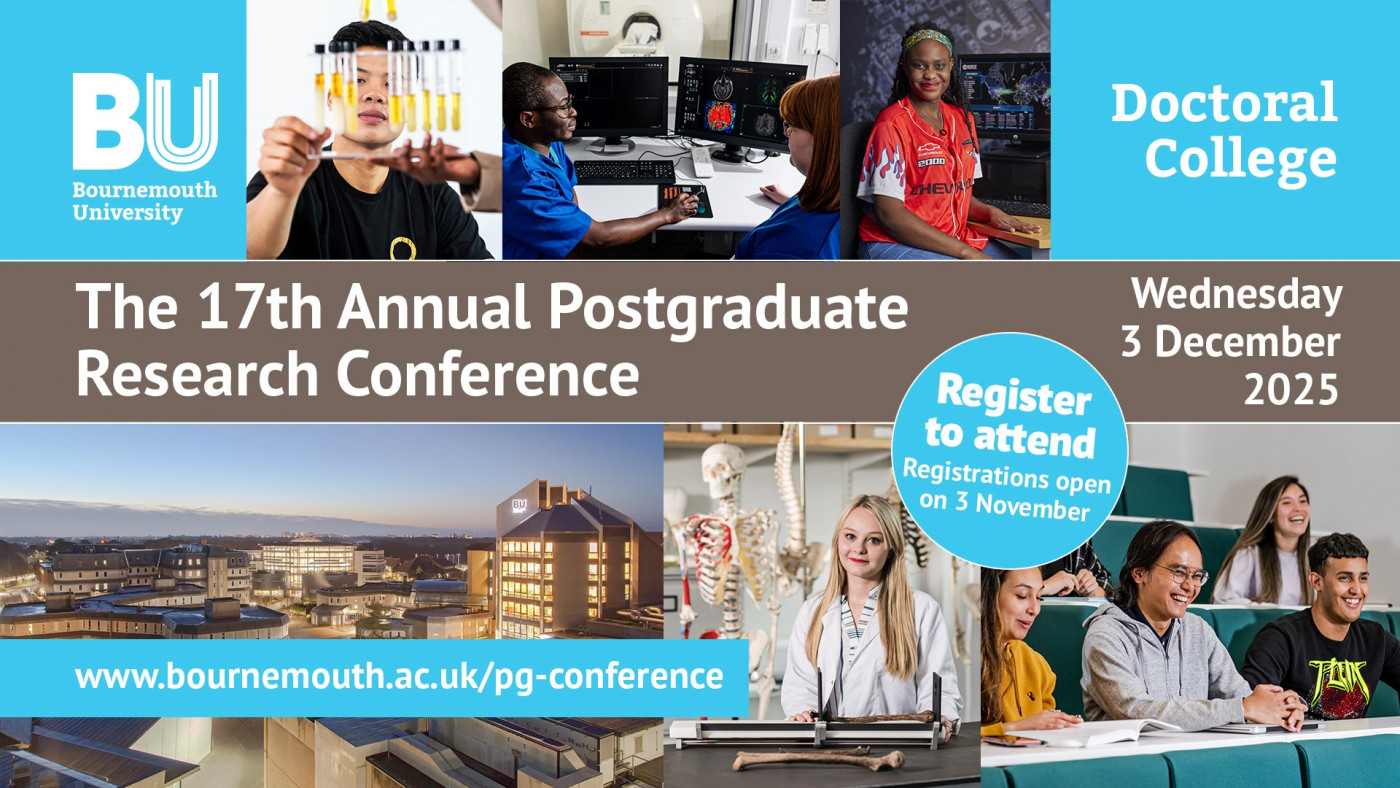 Register now to attend the 17th Annual Postgraduate Research Conference, hosted by the Doctoral College.
Register now to attend the 17th Annual Postgraduate Research Conference, hosted by the Doctoral College.
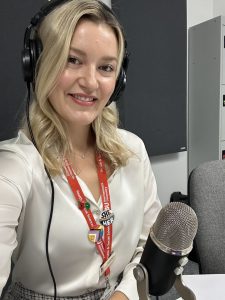 Dr Chloe Casey, lecturer in Nutrition and Behaviour, was interviewed on
Dr Chloe Casey, lecturer in Nutrition and Behaviour, was interviewed on 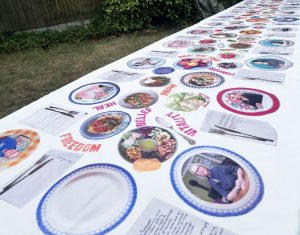 the Arts University Bournemouth (AUB) and Bournemouth, Christchurch and Poole Council.
the Arts University Bournemouth (AUB) and Bournemouth, Christchurch and Poole Council.










 Expand Your Impact: Collaboration and Networking Workshops for Researchers
Expand Your Impact: Collaboration and Networking Workshops for Researchers Visiting Prof. Sujan Marahatta presenting at BU
Visiting Prof. Sujan Marahatta presenting at BU 3C Event: Research Culture, Community & Can you Guess Who? Thursday 26 March 1-2pm
3C Event: Research Culture, Community & Can you Guess Who? Thursday 26 March 1-2pm UKCGE Recognised Research Supervision Programme: Deadline Approaching
UKCGE Recognised Research Supervision Programme: Deadline Approaching ECR Funding Open Call: Research Culture & Community Grant – Apply now
ECR Funding Open Call: Research Culture & Community Grant – Apply now ECR Funding Open Call: Research Culture & Community Grant – Application Deadline Friday 12 December
ECR Funding Open Call: Research Culture & Community Grant – Application Deadline Friday 12 December MSCA Postdoctoral Fellowships 2025 Call
MSCA Postdoctoral Fellowships 2025 Call ERC Advanced Grant 2025 Webinar
ERC Advanced Grant 2025 Webinar Update on UKRO services
Update on UKRO services European research project exploring use of ‘virtual twins’ to better manage metabolic associated fatty liver disease
European research project exploring use of ‘virtual twins’ to better manage metabolic associated fatty liver disease